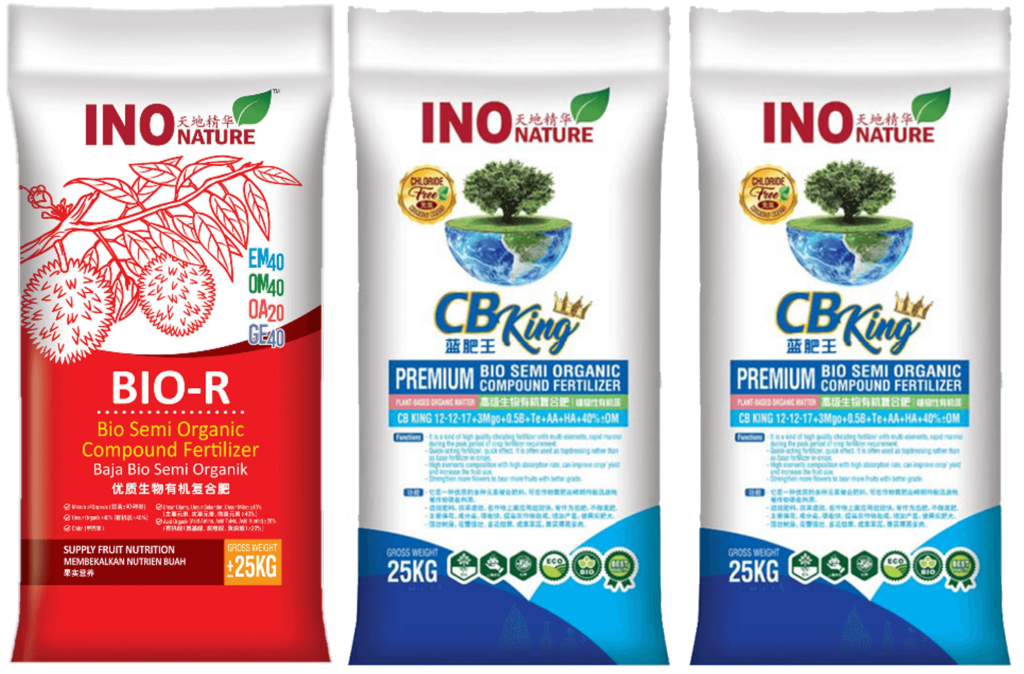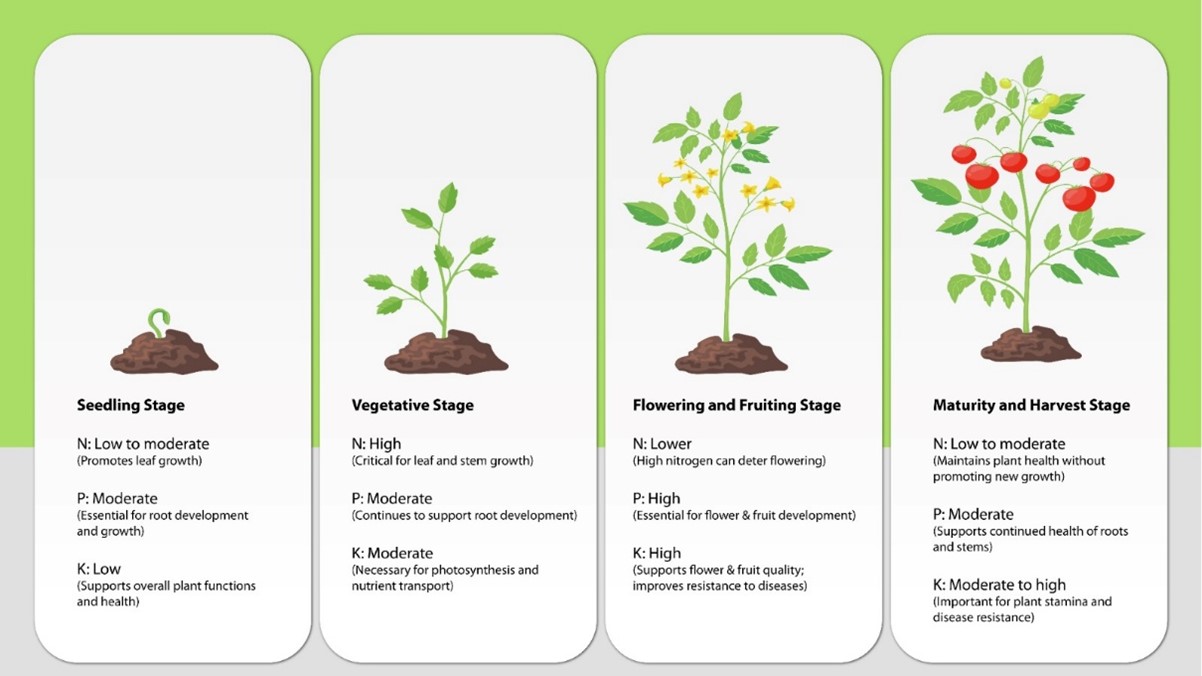Optimizing NPK in Fertilizers – What Are NPK and How Do They Work?
Home » Technical Sharing » Optimizing NPK in Fertilizers – What Are NPK and How Do They Work?
Overview
In our previous article, we highlighted the 3 common fertilizers in the agricultural industry today, namely chemical fertilizers, organic fertilizers, and bio fertilizers, as well as introduced INO Nature’s patented technology —Bio Semi-Organic fertilizers, which is a combination of chemical, organic and bio fertilizer.
Most industry-manufactured fertilizers nowadays typically contain three essential macronutrients crucial for fostering plant growth: nitrogen (N), phosphorus (P), and potassium (K), commonly referred to as NPK in the industry. Maintaining a balanced ratio of NPK and Bio organic in the soil is necessary to avoid negative impacts on plant health.
Understanding the NPK ratio in fertilizers is key to guiding precise and proper fertilizer application, ensuring effective and tailored plant nutrition. In this article, let’s delve deeper into the role of NPK in fertilizers.

How does NPK affect soil and crops?
With that being said, NPK remains the fundamental blend in all fertilizers that provides essential nutrients for plant growth. NPK fertilizer benefits are extensive. The nitrogen in the fertilizer promotes leaf growth; phosphorus affects the development of flowers, buds, roots, and fruits; and potassium’s role in regulating vital processes in plant growth, such as water flow and enzyme activities, will positively influence the eventual harvest quality.
Consequences of Imbalanced Levels of NPK in Fertilizers Towards Soil and Plant Health
According to the National Parks of the Singapore, symptoms of nitrogen deficiency in plants include the entire plant turning light green, followed by the yellowing of older leaves progressing towards younger ones, which will lead to plants becoming stunted and spindly. Additionally, the effects of phosphorus deficiency on plant growth may manifest as purple or bronze coloration on older leaves due to anthocyanin accumulation, resulting in slow growth and stunted plants. Furthermore, signs of potassium deficiency in plants include chlorosis at the edges of new mature leaves, followed by interveinal scorching and necrosis. Even with potassium supplementation, chlorosis is irreversible.
The effects of an imbalanced NPK ratio on soil and crop yield is serious. While considered essential for crop growth, there are also negative impacts of excessive nitrogen, phosphorus, or potassium in soil. Too little or too much of these three nutrients in the soil can pose various risks to plant health and ecosystem balance. Insufficient NPK nutrients can result in stunted growth and reduced yields, while an excess of any of these nutrients may disrupt plant development and have negative impacts on both yield and quality of harvested crops.

This means the presence of nitrogen, phosphorus, or potassium in soil should be adequate, without being excessively high. An imbalanced NPK ratio can further worsen existing issues, potentially causing soil stagnation, sickness, nutrient deficiencies, alkalinity, salinity, and reduced fertilizer efficacy. These challenges ultimately contribute to diminished crop yields and decreased profitability for farmers, so the importance of balanced soil nutrients for crop health should not be overlooked.
Therefore, achieving a balanced ratio of NPK is crucial. A good strategy for optimizing soil fertilizer and nutrient balance requires considering the availability of other nutrients when adjusting the levels of the specific nutrient under consideration.
Understanding the Labels of NPK in Fertilizers: What Do the Numbers Mean?
Different plants require specific nitrogen, phosphorus, and potassium proportions to achieve their maximum growth potential. This ratio, referred to as the NPK ratio, is displayed on fertilizer packaging as a set of three numbers. For example, INO Nature’s Bio Series fertilizer, BOCF, as shown in the image, is labeled as 5-5-5 on its packaging. This means that the fertilizer contains a nutrient combo of 5% nitrogen, 5% phosphorus, and 5% potassium, which helps to promote crop growth.

INO Nature Optimizing NPK in Fertilizers To Provide Balanced Nutrients For Crops
INO Nature’s fertilizers’ formulations are expertly crafted to meet a variety of plant needs, effectively addressing different growth stages and specific functions.
INO Nature has undergone extensive research and development in crafting optimal NPK ratios for diverse plant needs, catering to diverse plant needs such as tree growth, flowering, and fruiting. Additionally, our formulations address various plant functions, including treating Canker disease, enhancing plant immunity, facilitating fertigation, hydroponics, and other crucial aspects essential for maximizing plant health and productivity.
Achieving a balanced ratio of nitrogen, phosphorus, and potassium is essential for optimal crop growth and soil health. By understanding the role of NPK in fertilizers and the potential consequences of imbalanced nutrient levels in soil, farmers can make informed decisions to maximize crop yields and profitability while promoting sustainable agricultural practices. With INO Nature’s thoughtfully formulated fertilizers containing balanced NPK nutrients and addressing various plant needs, farmers can trust in the efficacy of their products to enhance plant health, productivity, and overall agricultural sustainability. You can check out our NPK-balanced fertilizers here.
If you need any assistance or consultation with the balance of NPK for your crop, do reach out to us.





